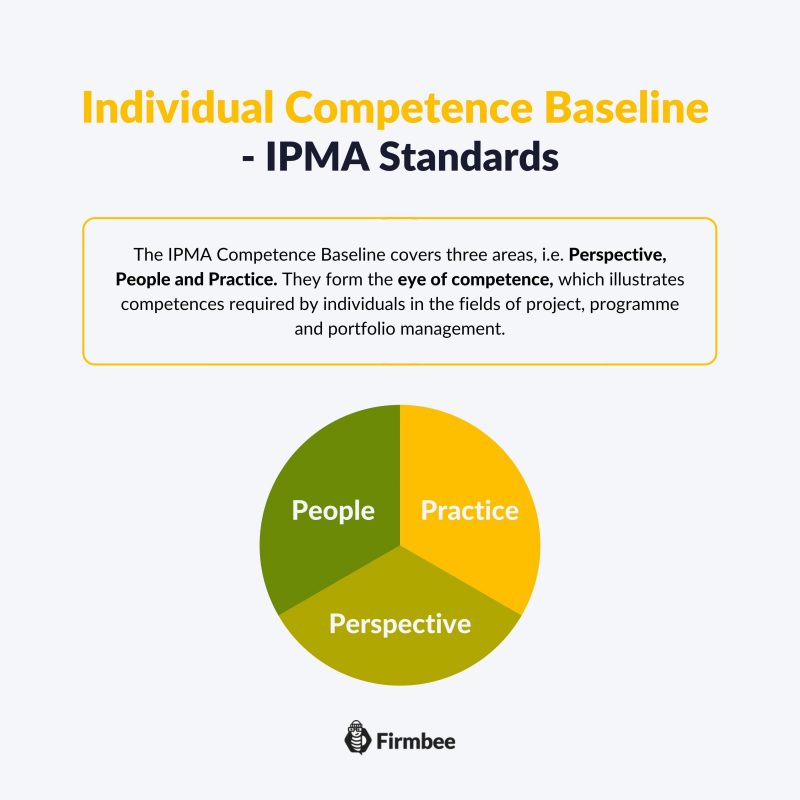Do you know what the IPMA Competence Baseline in project, programme and portfolio management is? What is its importance in the whole IPMA certification process? We will delve into this issue in the following article. Read on.
IPMA Competence Baseline – table of contents:
- IPMA Competence Baseline
- What is a project?
- What is a programme?
- What is a portfolio?
- Essential areas of the IPMA Competence Baseline
- Key Competence Indicators
IPMA Competence Baseline
The IPMA Competence Baseline covers three areas, i.e. Perspective, People and Practice. They form the eye of competence, which illustrates competences required by individuals in the fields of project, programme and portfolio management.

What is a project?
A project is a unique, multidisciplinary, and structured endeavor to deliver products that meet pre-defined requirements. Project management usually involves several employees, from junior project management professionals to senior project managers.
What is a programme?
A programme helps to achieve a strategic goal. It is a structure of interdependent components that are managed in a coordinated manner. Programme management usually requires the commitment of senior project managers and project directors.
What is a portfolio?
A portofio is a set of projects or programmes designated to achieve the organization’s strategic objectives. Projects and programmes brought together in a portfolio are not necessarily related to each other. The portfolio manager informs senior management representatives about any significant issues and provides them with solutions to resolve encountered problems. Since project and programme management are temporary efforts, and portfolio management is an ongoing process, the competence elements (Ces) have been structured to cover the full scope of projects, programmes and portfolios.
Essential areas of the IPMA Competence Baseline
Key areas of the IPMA Competence Baseline are as follows:
People. People CEs specify personal and interpersonal competencies necessary to sucessfully lead or participate in a project, programme and portfolio.
Practice. Practice CEs define specific methods, tools and techniques applied to projects, programmes or portfolios to achieve their goal.
Perspective. Perspective Ces outline methods, tools and techniques through which individuals interact with the environment, and the rationale that drives people, organizations, and societies to initiate and support projects, programmes and portfolios.
Key Competence Indicators
Within each competence area there are generic Competence Elements (CEs). They contain a list of specific knowledge and skill elements required to master the CE. Key Competency Indicators (KCIs) provide rules for managing successful projects, programmes and portfolios. There are also measures that detail the performance points within each KCI.
In the next sections of the IPMA Certification Guide, we will focus on presenting competencies regarding the aforementioned key areas.
Other resources: How to tackle major issues in project management?
If you like our content, join our busy bees community on Facebook, Twitter, LinkedIn, Instagram, YouTube, Pinterest.
Author: Caroline Becker
As a Project Manager, Caroline is an expert in finding new methods to design the best workflows and optimize processes. Her organizational skills and ability to work under time pressure make her the best person to turn complicated projects into reality.


















